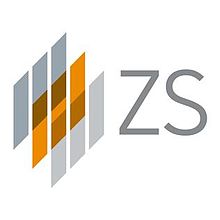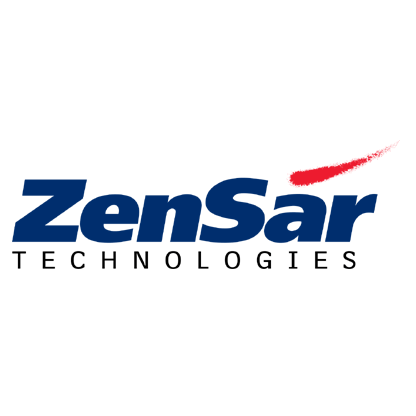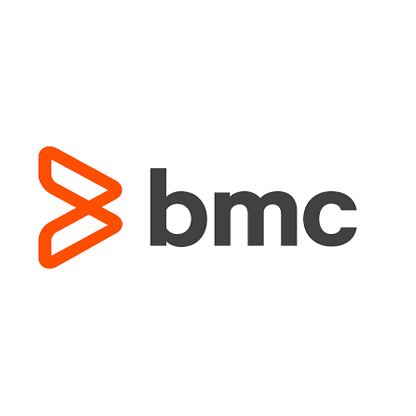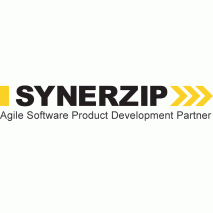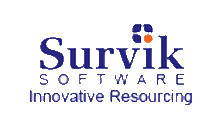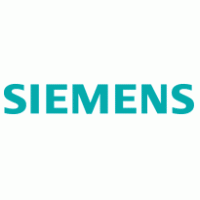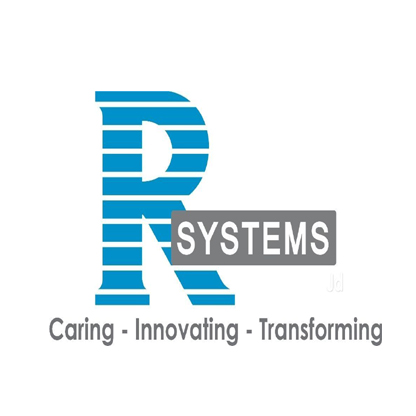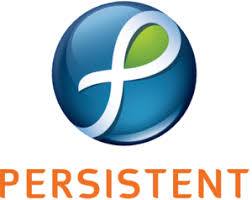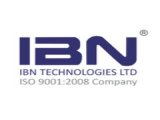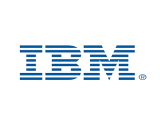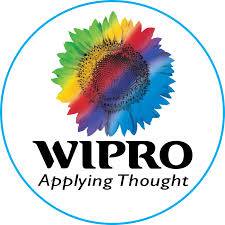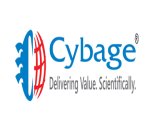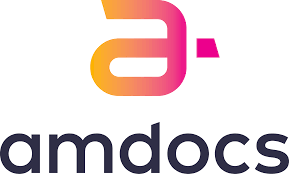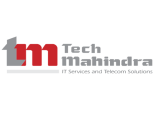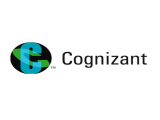Data Engineer Course In Pune
Big Data Institute In Pune



Course Duration
6 weeks
Live Project
Certification
Training Format
Live Online /Self-Paced/Classroom
Download Brochure & attend Free Online/Classroom Demo Session!
Key Features
Course Duration : 6 Weeks
Real-Time Projects : 2
Project Based Learning
EMI Option Available
Certification & Job Assistance
24 x 7 Support
Hadoop Syllabus
The detailed syllabus is designed for freshers as well as working professionals
- Java
- Overview of Java
- Classes and Objects
- Classes and Objects
- Inheritance, Aggregation, Polymorphism
- Command-line argument
- Abstract class and Interfaces
- String Handling
- Exception Handling, Multithreading
- Serialization and Advanced Topics
- Collection Framework, GUI, JDBC
- Linux
- Unix History & Over View
- Command line file-system browsing
- Bash/CORN Shell
- Users Groups and Permissions
- VI Editor
- Introduction to Process
- Basic Networking
- Shell Scripting live scenarios
- SQL
- Introduction to SQL, Data Definition Language (DDL)
- Data Manipulation Language(DML)
- Operator and Sub Query
- Various Clauses, SQL Key Words
- Joins, Stored Procedures, Constraints, Triggers
- Cursors /Loops / IF Else / Try Catch, Index
- Data Manipulation Language (Advanced)
- Constraints, Triggers,
- Views, Index Advanced
- Introduction to BigData
- Introduction and relevance
- Uses of Big Data analytics in various industries like Telecom, E- commerce, Finance and Insurance etc.
- Problems with Traditional Large-Scale Systems
- Hadoop (Big Data) Ecosystem
- Motivation for Hadoop
- Different types of projects by Apache
- Role of projects in the Hadoop Ecosystem
- Key technology foundations required for Big Data
- Limitations and Solutions of existing Data Analytics Architecture
- Comparison of traditional data management systems with Big Data management systems
- Evaluate key framework requirements for Big Data analytics
- Hadoop Ecosystem & Hadoop 2.x core components
- Explain the relevance of real-time data
- Explain how to use big and real-time data as a Business planning tool
- Building Blocks
- Quick tour of Java (As Hadoop is Written in Java , so it will help us to understand it better)
- Quick tour of Linux commands ( Basic Commands to traverse the Linux OS)
- Quick Tour of RDBMS Concepts (to use HIVE and Impala)
- Quick hands on experience of SQL.
- Introduction to Cloudera VM and usage instructions
- Hadoop Cluster Architecture – Configuration Files
- Hadoop Master-Slave Architecture
- The Hadoop Distributed File System – data storage
- Explain different types of cluster setups (Fully distributed/Pseudo etc.)
- Hadoop Cluster set up – Installation
- Hadoop 2.x Cluster Architecture
- A Typical enterprise cluster – Hadoop Cluster Modes
- Hadoop Core Components – HDFS & Map Reduce (YARN)
- HDFS Overview & Data storage in HDFS
- Get the data into Hadoop from local machine (Data Loading Techniques) – vice versa
- MapReduce Overview (Traditional way Vs. MapReduce way)
- Concept of Mapper & Reducer
- Understanding MapReduce program skeleton
- Running MapReduce job in Command line/Eclipse
- Develop MapReduce Program in JAVA
- Develop MapReduce Program with the streaming API
- Test and debug a MapReduce program in the design time
- How Partitioners and Reducers Work Together
- Writing Customer Partitioners Data Input and Output
- Creating Custom Writable and Writable Comparable Implementations
- Data Integration Using Sqoop and Flume
- Integrating Hadoop into an existing Enterprise
- Loading Data from an RDBMS into HDFS by Using Sqoop
- Managing Real-Time Data Using Flume
- Accessing HDFS from Legacy Systems with FuseDFS and HttpFS
- Introduction to Talend (community system)
- Data loading to HDFS using Talend
- Data Analysis using PIG
- Introduction to Hadoop Data Analysis Tools
- Introduction to PIG – MapReduce Vs Pig, Pig Use Cases
- Pig Latin Program & Execution
- Pig Latin : Relational Operators, File Loaders, Group Operator, COGROUP Operator, Joins and COGROUP, Union, Diagnostic Operators, Pig UDF
- Use Pig to automate the design and implementation of MapReduce applications
- Data Analysis using PIG
- Data Analysis using HIVE
- Introduction to Hive – Hive Vs. PIG – Hive Use Cases
- Discuss the Hive data storage principle
- Explain the File formats and Records formats supported by the Hive environment
- Perform operations with data in Hive
- Hive QL: Joining Tables, Dynamic Partitioning, Custom MapReduce Scripts
- Hive Script, Hive UDF
- Data Analysis Using Impala
- Introduction to Impala & Architecture
- How Impala executes Queries and its importance
- Hive vs. PIG vs. Impala
- Extending Impala with User Defined functions
- Improving Impala performance
- NoSQL Database – Hbase
- Introduction to NoSQL Databases and Hbase
- HBase v/s RDBMS, HBase Components, HBase Architecture
- HBase Cluster Deployment
- Hadoop – Other Analytics Tools
- Introduction to role of R in Hadoop Eco-system
- Introduction to Jasper Reports & creating reports by integrating with Hadoop
- Role of Kafka & Avro in real projects
- Other Apache Projects
- “Introduction to Zookeeper-Zookeeper”
- Data Model, Zookeeper Service
- Introduction to Oozie – Analyze workflow design and management using Oozie
- Design and implement an Oozie Workflow
- Introduction to Storm
- Introduction to Spark
- Spark
- What is Apache Spark?
- Using the Spark Shell
- RDDs (Resilient Distributed Datasets)
- Functional Programming in Spark
- Working with RDDs in Spark
- A Closer Look at RDDs
- Key-Value Pair RDDs
- MapReduce
- Other Pair RDD Operations
- Final project
- Real World Use Case Scenarios
- Understand the implementation of Hadoop in Real World and its benefits.
- Final project including integration various key components
- Follow-up session: Tips and tricks for projects, certification and interviews etc
Hadoop Training in Pune
Looking to build a career as a data engineer? 3RI Technologies offers a top-rated data engineer course in Pune, designed to provide in-depth knowledge and practical skills in big data technologies. Our bigdata training program is designed to help you master essential tools like Hadoop and Spark, which are critical for success in the field of data engineering.
At 3RI Technologies, we are recognized as one of the leading big data institutes in Pune, offering hands-on learning experiences with industry-standard tools and frameworks. Our expert trainers provide personalized guidance to help you understand complex concepts in big data analytics courses in Pune.
The course focuses on Hadoop classes that allow students to dive deep into the world of big data processing. We are proud to offer the best Hadoop course in Pune, featuring real-time projects and case studies. By enrolling in our course, you’ll gain skills that are highly valued in the job market, setting you on the path to success in the data engineering field. Whether you are new to the field or looking to advance your skills, our training ensures you receive the most comprehensive education.
WHAT IS “BIGDATA”?
Bigdata is nothing but a large volume of data or a massive size of files. It can be in a structured form or may be unstructured. Mostly and widely, Bigdata is used to analyze the data for better business decisions and also to help them in making future business strategies. To understand the Hadoop candidate should have the prerequisites as Java, SQL, and little knowledge of LINUX, 3RI Technologies is offering the Big Data Hadoop Training in Pune with all the above-stated prerequisites. Ideally, there are three significant aspects which make Bigdata so powerful-
- Volume
- Speed
- Variety
- Volume:- Earlier Data collection was a tough task for any organization since data can be of a flat file, CSV file, pipe-delimited, spreadsheets form, social media, or maybe core business transactions. Hadoop makes life easy for these organizations that dealt with extensive data.
- Speed:- Typically, it shows the rate by which you receive or transfer the data from one node to another. We can understand this by the simple example of Facebook, where we comment, like, and share any post, and it gets reflected in the very next moment, which is nothing but the speed of Bigdata.
- Variety:- The significant advantage of Bigdata is that it can handle very many types of data as mentioned in the Volume section, Bigdata can handle structured format, unstructured documents such as text, email, video, audio, or financial transaction data.
WHAT IS HADOOP?
Fundamentally Hadoop is an open-source infrastructure framework that allows store and processes the massive size of data or Bigdata. Since it is based on a cluster system, it works in a Master-Slave Architecture. In Master-Slave Architecture, the extensive data can be stored and processed in parallel. Structured, semi-structured and unstructured of data can be analyzed, Components of Hadoop
- HDFS: Hadoop Distributed File System
- Yarn
- Map Reduce
- Hadoop Common
3RI Technologies provide all the topics in detail for Hadoop and Bigdata contents, from scratch as MapReduce, PIG, HIVE, FLUME, SQOOP, etc. in our Hadoop Training in Pune course.
ADVANTAGES FOR ENTERPRISES:
The most critical and valuable takeaway from Hadoop Big data is a business can analyze their past data and make the business strategies for the future:
- Better Decision making
- Cost-effectiveness
- Time-effectiveness
- Time to develop new products.
WHAT HADOOP DOES?
- It provides you cost-effective storage solution for data.
- It provides easy to access a variety of data and analyze it quickly and effectively.
- It provides scalability in terms of storage.
- It is widely adopted now by different domains like healthcare, e-commerce, retail, BFSI, Supply Chain Management, Telecommunications, etc.
- Since it works on multiple unstructured nodes, there will always be a copy of data in case it failed on a particular node.
- Hadoop is a faster, cost-effective, and most rapid technology in terms of data storage and data analysis.
ADVANTAGES OVER RDBMS
RDBMS is more suitable for relational data as it works on tables. The main feature of the relational database includes an ability to use tables for data storage while maintaining and enforcing individual data relationships.
| Feature | RDBMS | Hadoop |
|---|---|---|
| Data Variety | Mainly for Structured data. | Used for Structured, Semi-Structured and Unstructured data |
| Data Storage | Average size data (GBs) | Use for large data set (Tbs and Pbs) |
| Querying | SQL Language | HQL (Hive Query Language) |
| Schema | Required on write (static schema) | Required on reading (dynamic schema) |
| Speed | Reads are fast | Both reads and writes are fast |
| Cost | License | Free |
| Use Case | OLTP (Online transaction processing) | Analytics (Audio, video, logs, etc.), Data Discovery |
| Data Objects | Works on Relational Tables | Works on Key/Value Pair |
| Throughput | Low | High |
| Scalability | Vertical | Horizontal |
| Hardware Profile | High-End Servers | Commodity/Utility Hardware |
| Integrity | High (ACID) | Low |
Initially, if you know RDBMS, it is good to learn HDFS. But, sometimes people are coming from configuration management, data analytics, freshers, or from the non-IT background, we teach them Oracle SQL(RDBMS) and then show them HDFS in our Best Hadoop Training in Pune Course.
WHY HADOOP?
Because of its low-cost implementation, Hadoop is attracting the business to adopt it more conveniently. As per a report by Allied Market Research, The market for Hadoop is projected to rise from $1.5 billion in 2012 to an estimated $16.1 billion by 2020. Significantly observed that the DBMS industry has expanded from application and web into healthcare, retails, e-commerce, banking, hospitals, and government, etc. This expansion creates a massive demand for cost-effective platforms, which can be scalable like Hadoop. The key to the success of Hadoop is nothing but the advantages it provides to end-users:
- Scalable
- Resilience to failure
- Cost-effectiveness
- Fast
- Flexibility
Importance of Big Data Analytics There is no doubt that Big Data analytics is a revolution in the field of Information Technology. Companies have realized its advantages and are enhancing their usage day by day. Since any business is based on users, this field is flourishing in Business to Consumer (B2C) applications. We can divide Big Data analytics into three divisions as:
- Prescriptive Analytics
- Predictive Analytics
- Descriptive Analytics.
Why is Big data analytics so important today? There are four mainly observed perspectives, due to which Bigdata is in huge demand nowadays.
- Data Science Perspective
- Business Perspective
- Real-time Usability Perspective
- Job Market Perspective
3RI Technologies offer Hadoop Classes in Pune, where we cover the Bigdata concept and Hadoop in detail.
JOB OPPORTUNITIES AND BIG DATA ANALYTICS
Since industries have invested considerable amounts in the Big Data technologies, they need resources that have excellent skills in big data analytics, and hence they are in huge demand. The business pays attractive salary packages and incentives for qualified Bigdata Professionals. The IT professionals who have been worked as RDBMS Resource, Java Programmer, Mainframes, Database Support, Database Administrators can learn the analytics tools for a promising career. Our industry expert Hadoop trainer help students to have theoretical with practical knowledge of Hadoop and big data, that is how we provide the best Hadoop training in Pune. Since Data Analytics is something which is an unavoidable requirement in any industry irrespective of their business domain, hence this profile can be considered as an evergreen and top demanded job in IT. Since it is emerging in every field, the workforce needs are equally enormous. The job titles may include Big Data Analyst, Big Data Engineer, Business Intelligence Consultants, Solution Architect, Hadoop Developer, etc. 3RI Technologies offers for Job Assistance to our candidates who have joined Hadoop Classes in Pune.
CERTIFICATIONS?
Nowadays, multiple entities are offering Hadoop Bigdata Certifications, according to us and there are two reputed certifications in terms of Indian Market recognition :
- Cloudera Certified Professional
The Cloudera certification helps you design and develop data pipelines that will test your skills in data ingestion, storage, and analysis. Cloudera is an authoritative voice in the Big Data Hadoop domain, and this certification is your testimony to acquiring the top skills in Big Data Hadoop. Various certifications are Cloudera offers in the fields of Hadoop development, Apache Spark, Hadoop administration, among others. You can choose the right accreditation, depending on where you want to showcase your skills like development, administration, and so on. 3RI Technologies offer Hadoop Classes in Pune, which provides a complete understanding and practice question papers for Cloudera Certifications. - Hortonworks Hadoop Certification
Hortonworks is offering a reputed Hadoop certification. As we know, Hortonworks is a commercial Hadoop vendor offering enterprises the Hadoop tools that can be used to deploy in the enterprise setup. This Hortonworks certification is being provided for Hadoop developers, Hadoop administrators, Spark developers, and other prominent data professionals. These Hortonworks certificates are highly sought-after in the corporate world, making it highly worthwhile to pursue this certification. 3RI Technologies is the only Hadoop Training Institute in Pune, which offers a complete understanding and practice question papers for Hortonworks Hadoop Certifications. - The HDP Certified Developer (HDPCD) Exam
The HDP Certified Developer (HDPCD) exam is for candidates who have good knowledge in Hadoop Development Skills and who are proficient in Pig, Hive, Sqoop, and Flume. It is based on the Hortonworks Data Platform 2.4 installed and managed with Ambari 2.2, which includes Pig 0.15.0, Hive 1.2.1, Sqoop 1.4.6, and Flume 1.5.2. Each certification aspirant will be given access to an HDP 2.4 cluster and a list of tasks to be performed on that cluster.
Free Career Counselling
WE are Happy to help you
Batch Schedule
Schedule Your Batch at your convenient time.
Sr. No.
Module Name
Batch Start Date
Batch Days
Timing
Enroll
FAQs
Most frequent questions and answers
We strongly believe in hands-on practical training and our trainers make sure that is imparted to our students as well. Saying that, yes we will cover a live project which needs to be completed during the course
I'm Interested in This Program

Get Free Career Counseling
Talk to a counselor in 5 minutes
Having trouble? Call us at 8308103366 or Chat on WhatsApp.
Our Clients
